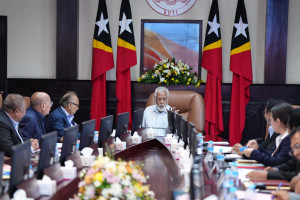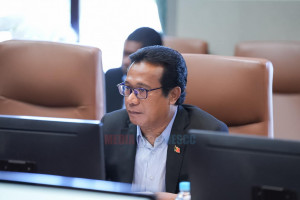The Council of Ministers, in the meeting on February 21st, 2024, approved the draft Law Proposal on the Higher Education Framework Law, presented by the Minister for Higher Education, Science and Culture, José Honório da Costa Pereira Jerónimo.
More than 14 years after the entry into force of the Education Framework Law, the aim is not only to meet current demands and challenges but also to ensure an improvement in quality by creating a specific Framework Law for the higher education sector. The Education Framework Law will remain in force almost entirely, with the only repeal being Subsection III of Section III of Chapter II, which refers specifically to the organisation of the higher education system. 
Among the measures proposed by this Law Proposal is replacing Diplomas I and II in technical higher education with Higher Technical-Vocational Courses (CTePS) lasting four semesters (two years). Technical higher education establishments can now award bachelor’s, licentiate’s or vocational master’s degrees and diplomas, thus correcting a previous situation of inequality in the awarding of degrees and diplomas in technical higher education. These measures aim to facilitate the international academic recognition of students and improve their job prospects in training.
Changes are also proposed to the duration of the bachelor’s degree cycle, which will now last 8 or 10 semesters (4 or 5 years respectively) and the possibility of awarding a master’s degree after training for twelve semesters is introduced, including an integrated, non-divisible bachelor’s degree part corresponding to the first eight semesters of the integrated master’s degree course. The Higher Education Framework Law incorporates a rule authorising distance learning in the sector, considering the needs highlighted during the Covid-19 pandemic. 
The diploma establishes that, in higher education, Portuguese should be the main language of teaching, research and instruction, with Tetum being used as a supporting language in the respective processes. The state is committed to valorising and developing the Tetum language, with a view to its future use as the main language in higher education. There are exceptions to this rule, namely in teaching foreign languages, international cooperation programmes and specific programmes that require teaching in a foreign language.
The Higher Education Framework Law will now undergo discussion and voting in the National Parliament.